ANDERSEN, Hans Christian (1805-1875). Autograph quotation signed ("H. C. Andersen"), n.p., n.d. 1 page, oblong, 216 mm. (5.3/8 x 8½ in), in brown ink centered on a sheet of wove paper (removed from an album amicorum), small stationer's embossed stamp ("Lath") at top right-hand corner, minor repair to one corner . [ With ]: Carte-de-visite portrait photograph of Andersen, n.p., n.d. [ca.1860?], 100 x 61 mm. (3.15/16 x 2.3/8 in.) including mount, blank verso slightly discolored from old mounting, matted with the preceding. An oval image of the author, gazing to the right, SIGNED ON VERSO: "H.C. Andersen." "LIFE IS A BEAUTIFUL FAIRY TALE" Andersen, contributing an inscription to an album amicorum, inscribes a phrase of particular resonance given his own literary interests: "Das Leben ist das schönsten Märchen.' (Carus)." The attribution of the phrase to Carl Gustav Carus (1789-1869), physician in ordinary to the king of Saxony, has not been traced. Carus, a distinguished physiologist, was also a literary figure of no mean accomplishments, who carried on a wide correspondence with figures in the romantic movement and published works on Goethe, landscape painting, accounts of his travels and philosophical works. (2)
ANDERSEN, Hans Christian (1805-1875). Autograph quotation signed ("H. C. Andersen"), n.p., n.d. 1 page, oblong, 216 mm. (5.3/8 x 8½ in), in brown ink centered on a sheet of wove paper (removed from an album amicorum), small stationer's embossed stamp ("Lath") at top right-hand corner, minor repair to one corner . [ With ]: Carte-de-visite portrait photograph of Andersen, n.p., n.d. [ca.1860?], 100 x 61 mm. (3.15/16 x 2.3/8 in.) including mount, blank verso slightly discolored from old mounting, matted with the preceding. An oval image of the author, gazing to the right, SIGNED ON VERSO: "H.C. Andersen." "LIFE IS A BEAUTIFUL FAIRY TALE" Andersen, contributing an inscription to an album amicorum, inscribes a phrase of particular resonance given his own literary interests: "Das Leben ist das schönsten Märchen.' (Carus)." The attribution of the phrase to Carl Gustav Carus (1789-1869), physician in ordinary to the king of Saxony, has not been traced. Carus, a distinguished physiologist, was also a literary figure of no mean accomplishments, who carried on a wide correspondence with figures in the romantic movement and published works on Goethe, landscape painting, accounts of his travels and philosophical works. (2)






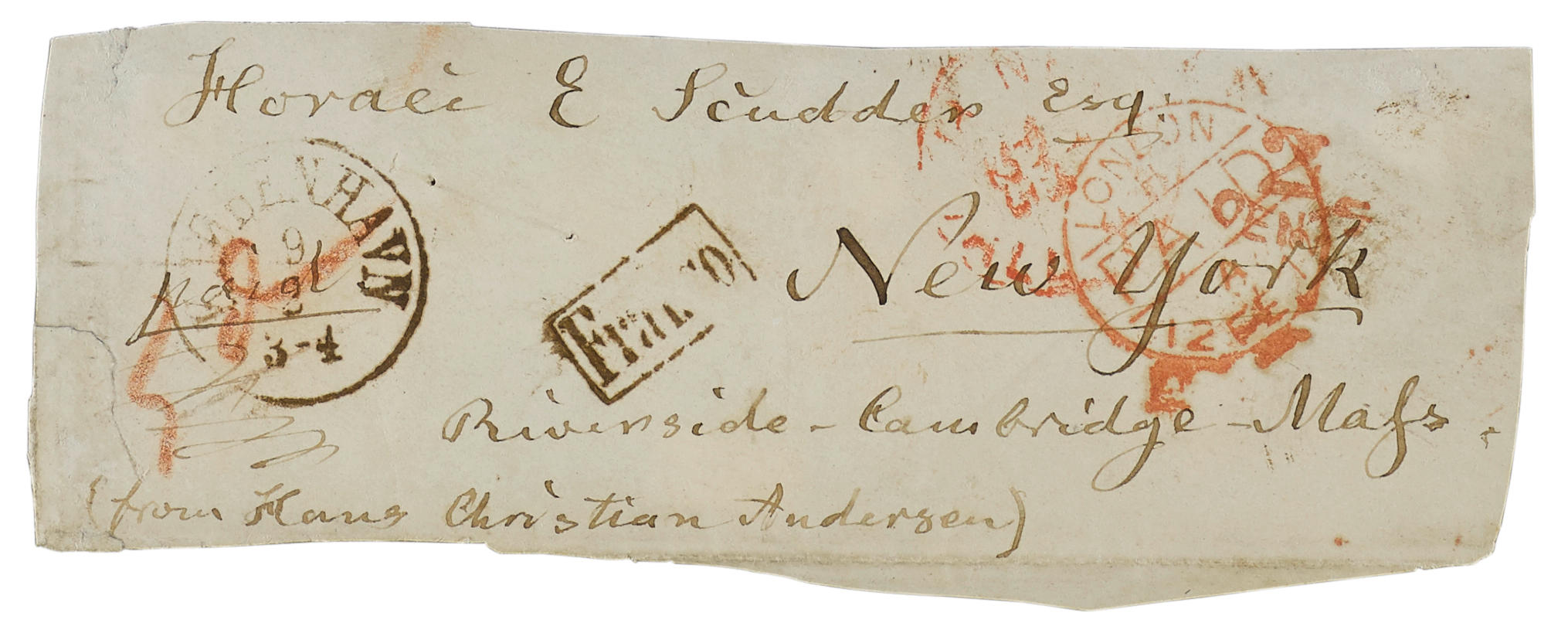
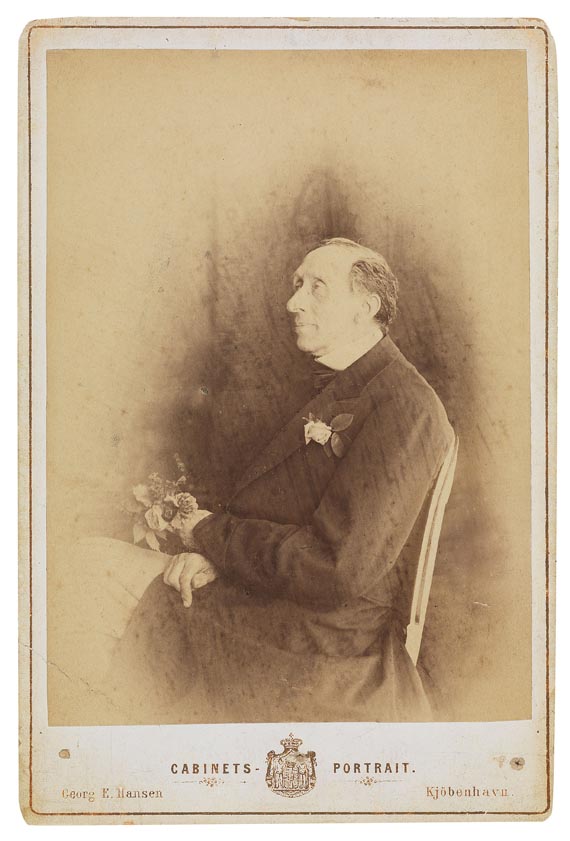
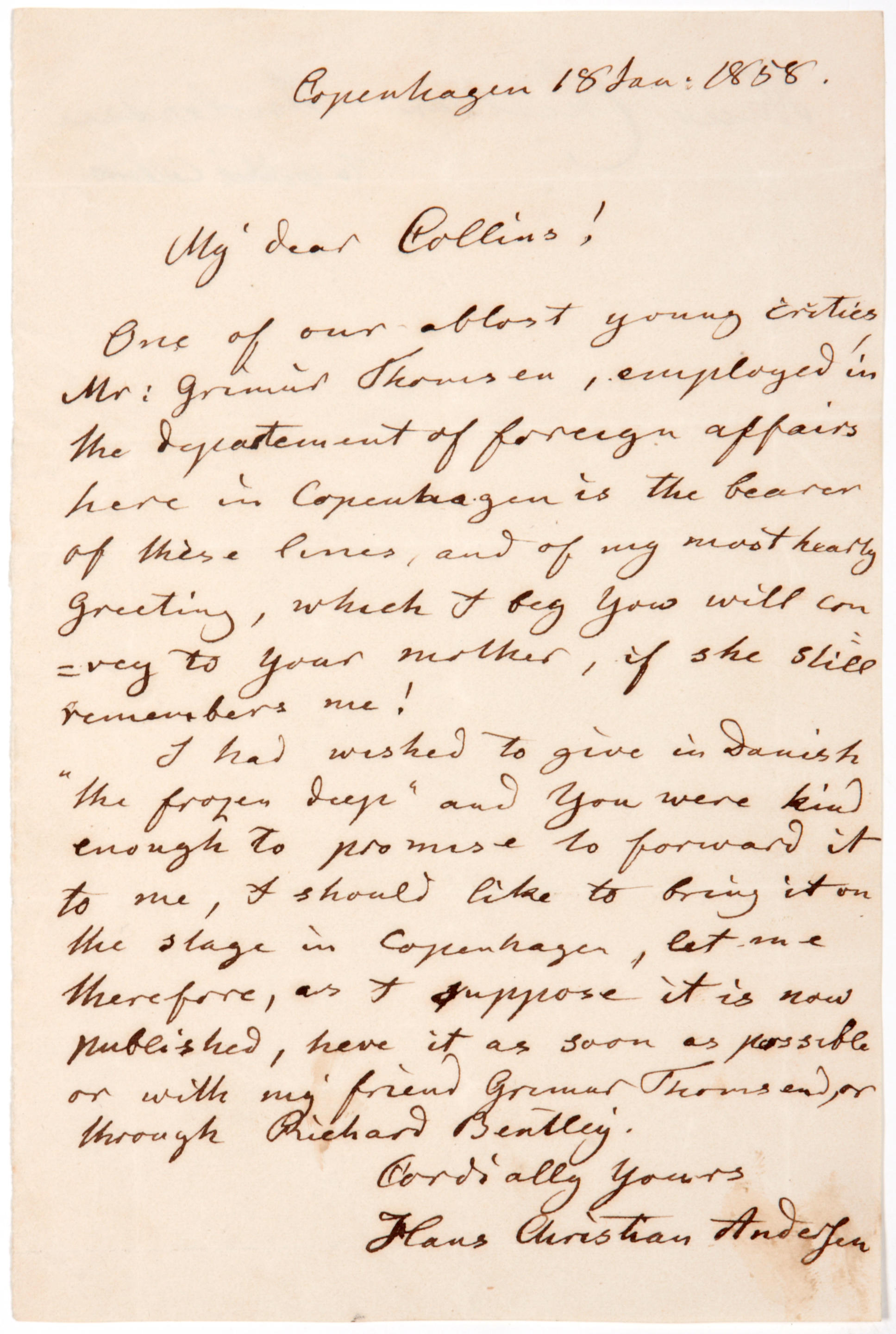
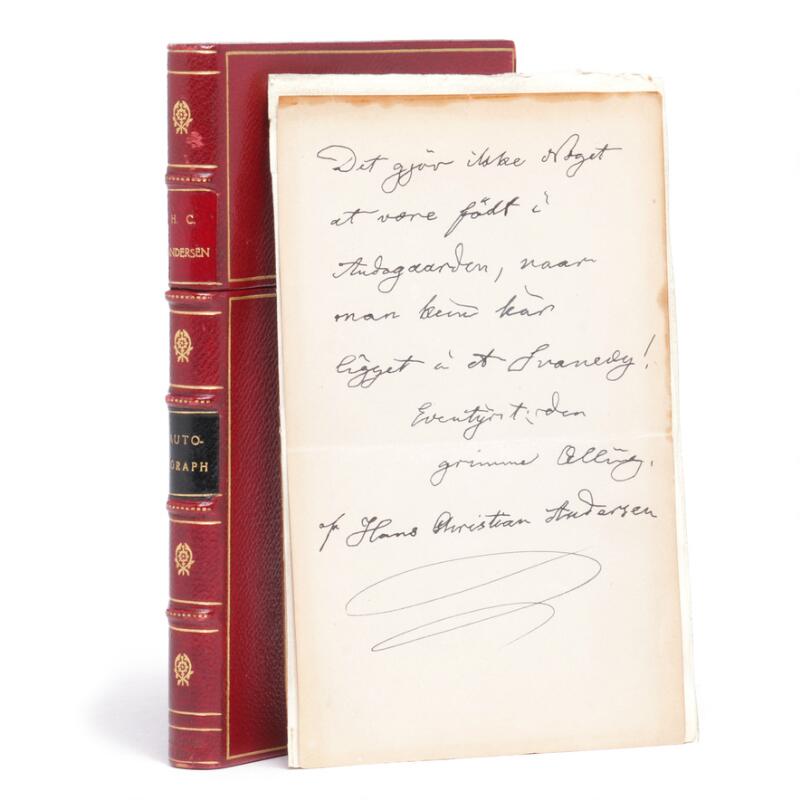
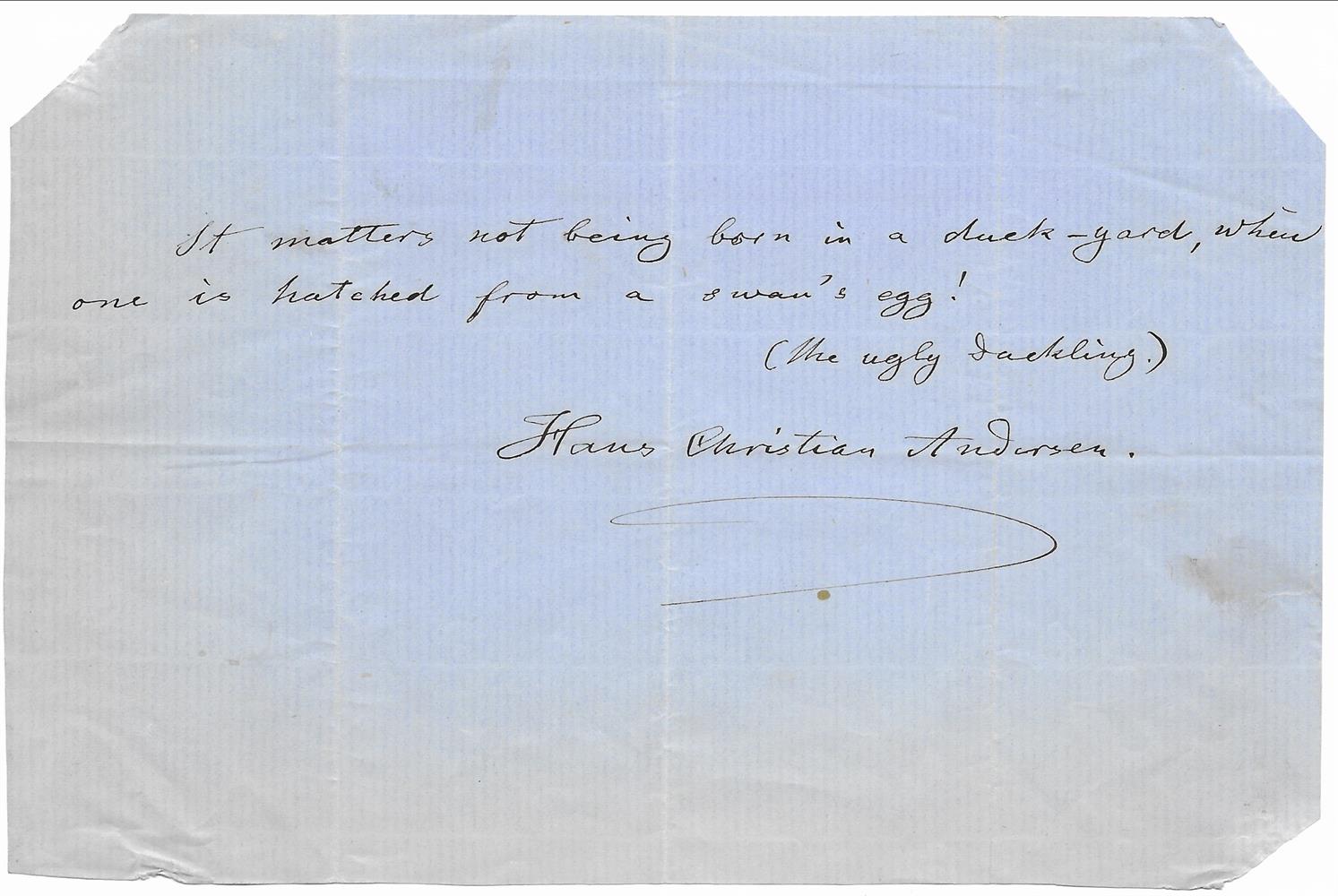
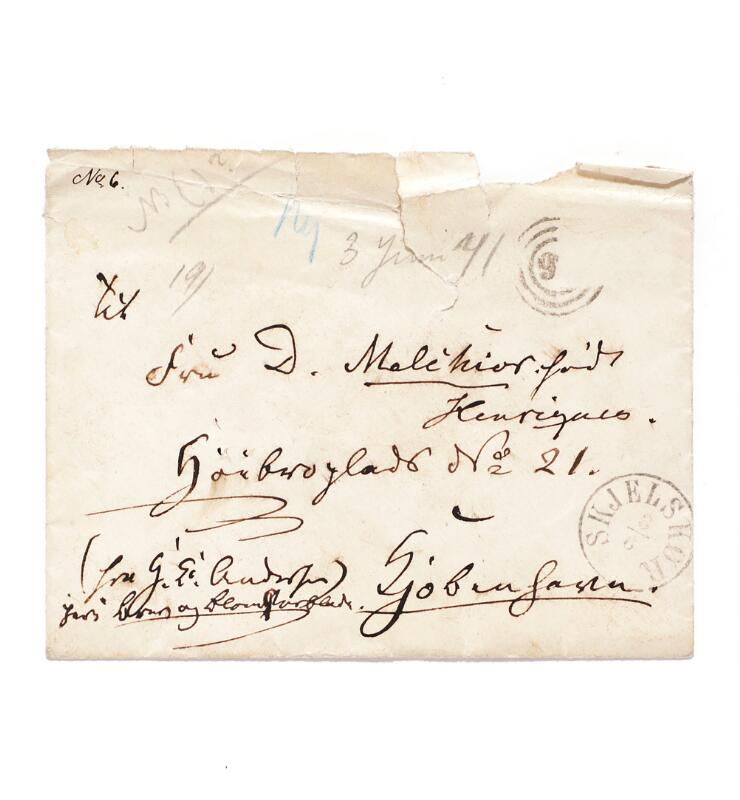
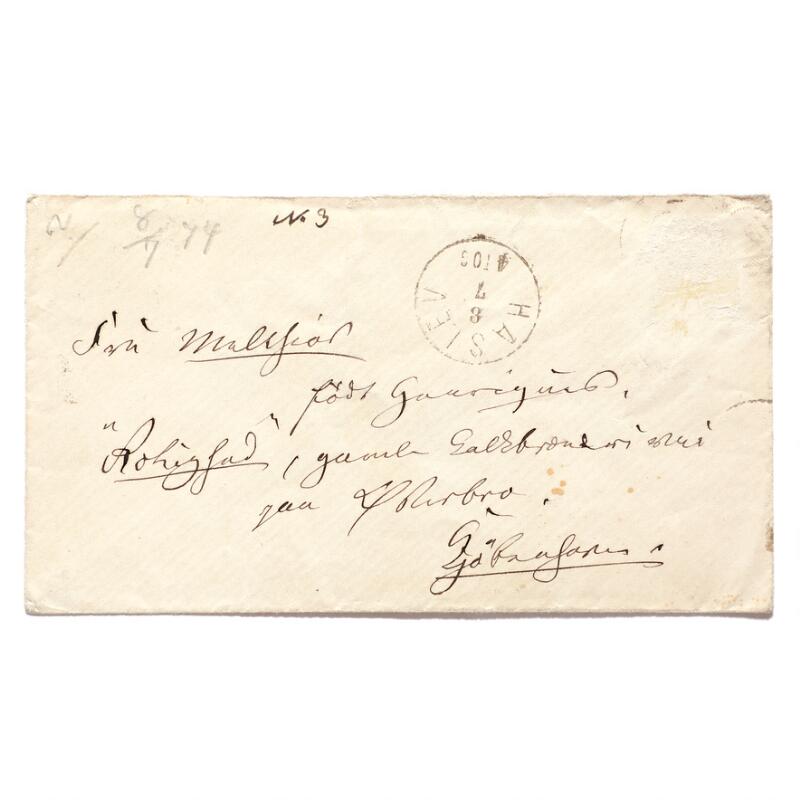
Try LotSearch and its premium features for 7 days - without any costs!
Be notified automatically about new items in upcoming auctions.
Create an alert